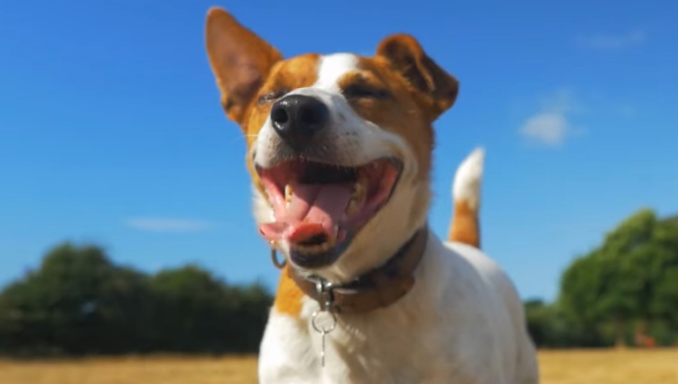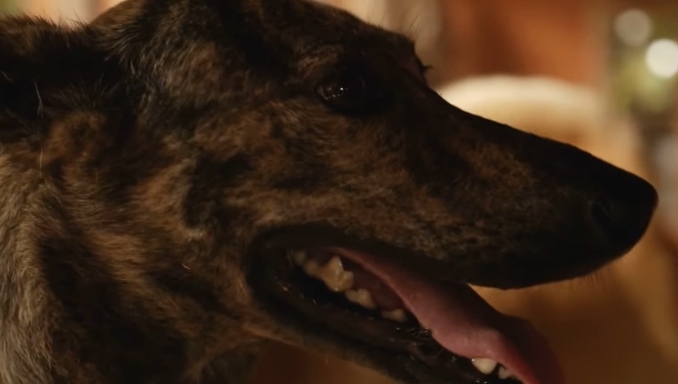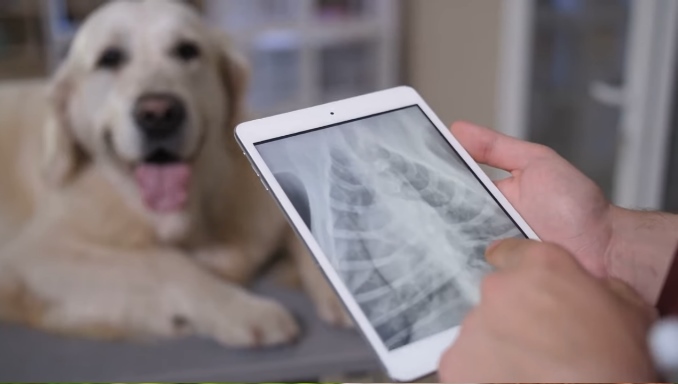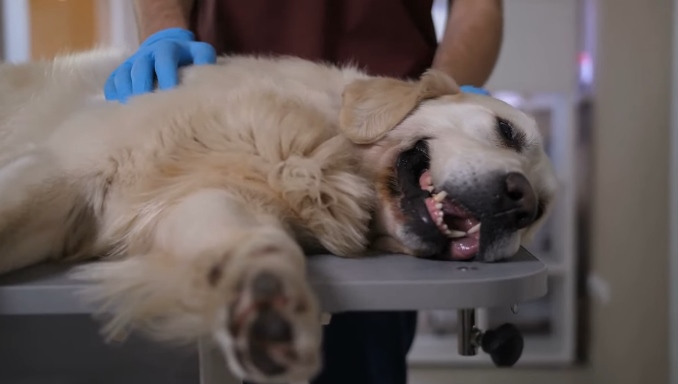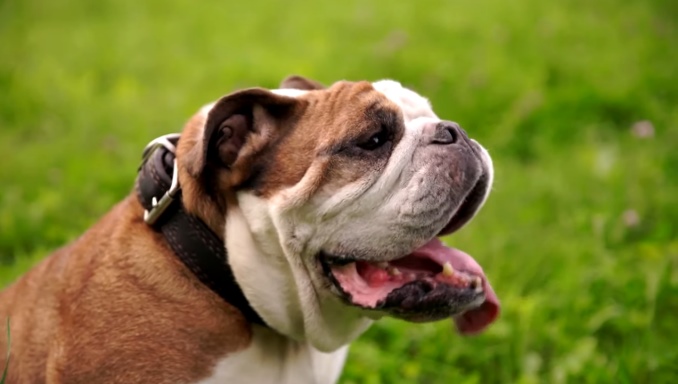Why Is My Dog Panting?
Looking for an answer to the question of why is my dog panting? You’re not alone. This is a question that many pet owners find themselves asking, especially during the hot summer months. There are a variety of reasons why your dog may be panting, some more serious than others. In this blog post, we will explore some of the most common causes of excessive panting in dogs and what you can do to help alleviate the problem. Stay cool!
What Factors Affect A Dog’s Breathing?
There are a number of factors that can affect a dog’s breathing, including the environment, their health, and any underlying medical conditions. For example, if it is very hot or humid outside, your dog may Pant more to help them cool down. If they are in pain or have an infection, this can also lead to increased respirations. And, some medical conditions, such as heart disease or lung disease, can make it more difficult for a dog to breathe. If you are concerned about your dog’s breathing, it is best to consult with your veterinarian. They can help determine if there is an underlying problem and provide the appropriate treatment.
Why Is My Dog Panting?
One common reason why dogs pant is because they are overheated. Dogs cool themselves by panting, so if your dog is panting excessively, it could be a sign that they are too warm. Other reasons why dogs pant can include anxiety, excitement, or pain.
There are many reasons why your dog may be panting, some more serious than others. If your dog is panting excessively, it is important to consult with your veterinarian to rule out any underlying medical conditions. In the meantime, here are some of the most common reasons why dogs pant: It’s hot outside, they’re in pain, they have an infection, they’re anxious or stressed, or they have a medical condition.
It’s hot outside:
If it is hot outside, your dog may be panting to help them cool down. Dogs don’t sweat like humans do, so they rely on panting to evaporate the moisture from their tongue and release heat from their body.
Dogs sticking out their tongues and panting are mostly due to overexertion causing heat shock, especially in hot weather conditions. Pets often suffer from heat stroke in the summer when the weather reaches 38-40 degrees, the temperature outside is much higher than in the room. Panting helps dogs cool off when hot or active. Especially in some short-snouted dog breeds such as Pug, Bulldog, and Boston terrier, they are more prone to shortness of breath and panting than other breeds.
Just finished exercising:
Dogs breathe quickly to regulate their breathing after vigorous exercise, such as running, jumping, playing. This is normal and should stop after a few minutes.
Anxiety or excitement:
A dog may also pant when nervous or excited. If your dog is panting and seems anxious or stressed, it may be due to a condition called “brachycephalic airway syndrome.” This is common in short-nosed breeds, such as Bulldogs and Pugs. It occurs when the soft palate, larynx, and nostrils are narrower than normal, making it difficult for them to breathe. Dogs with this condition may also snore or make grunting noises when they breathe. If you think your dog may have brachycephalic airway syndrome, it is best to consult with your veterinarian.
They’re in pain:
If your dog is panting and seems to be in pain, it is important to consult with your veterinarian as soon as possible. Pain can cause an increase in a dog’s respiratory rate, which can lead to excessive panting.
They have an infection:
If your dog has an infection, they may be panting due to the increased respiration rate that comes with it. Infections can also cause a fever, which can lead to excessive panting as well.
They’re anxious or stressed
Anxiety and stress can also lead to increased panting in dogs. If your dog is panting and seems to be anxious or stressed, it is important to consult with your veterinarian to see if there is an underlying medical condition causing the anxiety or if the anxiety is due to a change in the environment.
They have a medical condition
Above are some cause for why is my dog panting? There are a number of medical conditions that can cause increased panting in dogs. Some of the most common include heart disease, lung disease, and kidney disease. If your dog has been diagnosed with a medical condition, it is important to work with your veterinarian to manage the condition and help alleviate any symptoms.
Panting is a normal way for dogs to cool themselves down, but if your dog is panting excessively, it could be a sign of a medical condition. If you are concerned about your dog’s panting, it is best to consult with your veterinarian. They can help determine if there is an underlying problem and provide the appropriate treatment.
Health Problems Related to Dogs Panting
There are some health problems for the question why is my dog panting? In most cases, panting is a normal phenomenon for dogs. But if the dog is panting too much or breathing in an unusual way, this condition is also a sign that the dog is having a health problem.
Respiratory problems
Dogs with respiratory disorders may hyperventilate or hyperventilate for no apparent reason. Rapid breathing is often accompanied by symptoms of other illnesses. Some of the respiratory conditions that can accompany abnormal shortness of breath are:
Collapsed trachea: A condition in which the cartilage ring surrounding the trachea weakens, causing the windpipe to collapse. This can cause a honking sound when the dog breathes, as well as other respiratory symptoms.
Upper airway obstruction: A condition that occurs when something blocks the dog’s airway, such as a tumor or foreign object. This can cause difficulty breathing, coughing, gagging, coughing, or wheezing.
Condition of the lungs: Various lung conditions, such as pneumonia, can cause difficulty breathing. If a dog’s lungs have a build-up of fluid, they will have trouble breathing. When the dog’s head and neck are extended, the dog’s breathing may be short, rapid, and rapid. A dog’s lips, gums, and tongue may appear blue due to lack of oxygen.
Heart problems: Various heart conditions can cause shortness of breath, including congestive heart failure, arrhythmias, and valvular disease.
Anemia: This condition occurs when there are not enough red blood cells to carry oxygen to the tissues. This can cause shortness of breath, among other symptoms.
Allergies: Allergic reactions can cause shortness of breath, as well as other symptoms such as sneezing, wheezing, and coughing.
Bronchitis and Pneumonia: Dogs may wheeze if they have an infection caused by bronchitis or pneumonia. Bronchitis causes a dry cough in dogs and can cause vomiting. Symptoms of pneumonia include shortness of breath, fever, lethargy, and a cough that sounds like congestion.
Cardiovascular disorders
Why is my dog panting? There are a few reasonsExcessive shortness of breath can also be a symptom of heart disease. This condition can occur with the following heart problems:
Heartworms: These parasites live in the heart and lungs of dogs and can cause a cough, exercise intolerance, and shortness of breath. These parasites live in the heart and lungs of dogs and can cause a cough, exercise intolerance, and shortness of breath.
Congestive Heart Failure: A dog with congestive heart failure is often lethargic, fatigued easily, has difficulty breathing after exercise, and may have shortness of breath. They also have a chronic dry cough, which is aggravated by exercise. Dogs may also lose their appetite and be less interested in normal activities.
This condition occurs when the heart cannot pump enough blood to meet the body’s needs. This can cause fluid to build up in the lungs and other organs, leading to shortness of breath.
Dilated cardiomyopathy: This disease may be related to hypothyroidism. A dog with dilated cardiomyopathy may tire easily after (not too intense) exercise, chronic cough, lethargy, and loss of appetite.
This is a type of heart disease that is characterized by an enlarged heart. This condition can cause shortness of breath, exercise intolerance, and a chronic cough.
Arrhythmias: These are abnormal heart rhythms that can cause the heart to beat too fast or too slow. Arrhythmias can cause dizziness, fainting, and shortness of breath.
Mitral valve disease: This is a type of heart valve disease that can cause shortness of breath, a cough, and exercise intolerance.
Panting should not be confused with labored breathing. A dog that is breathing heavily will show signs of pain and difficulty breathing.
Call your veterinarian if you think your dog’s shortness of breath is unusual and related to health problems. Take your dog to the vet immediately if he is in pain, wheezing, or having trouble breathing.
Dog panting due to other causes
- Eating quickly leads to choking on food
- The dog is in pain or in physical pain
- Side effects of certain medications
- Eclampsia in postpartum dogs causes rapid breathing.
In short, panting is not a medical condition for dogs. This is a common occurrence. A healthy dog will only pant for a short period of time. After that, their respiratory rate will return to normal.
If you suspect your dog’s panting, you can check the color of the dog’s tongue and the color of his gums. When the dog is healthy and the dog’s rapid breathing is not unusual, their tongue will be pink. That’s because the dog’s blood oxygen level is in the healthy range.
How Can You Tell Normal Dog Panting From Excessive Panting?
One way to tell the difference between normal and excessive panting is by duration. If your dog is panting for more than 30 minutes at a time, this could be a sign of an underlying health condition and you should take them to see a vet. Another way to tell if your dog’s panting is excessive is by observing their behavior. If they seem restless, anxious, or are pacing back and forth, this could be a sign that they are not feeling well. If you are ever concerned about your dog’s health, it is always best to consult with a veterinarian.
What Can I Do to Help My Dog?
If you are concerned about your dog’s Panting, it is best to consult with your veterinarian. They can help determine if there is an underlying problem and provide the appropriate treatment. In the meantime, here are some tips that may help reduce your dog’s Panting:
1. Make sure they have access to fresh, cool water: It is important to make sure your dog has access to fresh, cool water. This will help them stay hydrated and may help reduce their Panting.
2. Create a cool environment: If it is hot outside, try to create a cool environment for your dog. This may involve setting up a fan or air conditioner, or placing them in a shady spot.
3. Avoid strenuous activity: If your dog is Panting excessively, it is important to avoid strenuous activity. This will help prevent their body temperature from rising too high and will give them time to rest and recover.
4. Talk to your veterinarian: If you are concerned about your dog’s Panting, it is best to consult with your veterinarian. They can help determine if there is an underlying problem and provide the appropriate treatment.
With my experience as a veterinarian, I would like to give you 15 tips on how to handle panting dogs:
15 Tips To Handle a Panting Dog:
1. Check If The Dog Is Overweight: One of the main reasons for panting is obesity. You can check your dog’s weight by using this weight chart.
2. Avoid Hot Spots: Hot spots are areas on your dog’s body that are generate heat. These areas can make your dog’s panting worse. Avoid hot spots by keeping your dog cool and avoiding strenuous activity.
3. Create A Cooling Environment: Try to create a cool environment for your dog. This may involve setting up a fan or air conditioner, or placing them in a shady spot.
4. Try Some Home Remedies: There are several home remedies that can help reduce your dog’s panting. These include: Putting a cool, wet towel on their neck, Giving them a cool bath, and adding some electrolytes to their water.
5. Keep Them Hydrated: It is important to make sure your dog has access to fresh, cool water. This will help them stay hydrated and may help reduce their panting.
6. Know When To Worry: If your dog is panting for more than 30 minutes at a time, this could be a sign of an underlying health condition and you should take them to see a vet.
7. Understand Your Dog’s Anatomy: Knowing your dog’s anatomy can help you understand why they pant. The main reason dogs pant is to regulate their body temperature. Dogs do not sweat like humans, so they pant to evaporate the moisture on their tongue and in their lungs.
8. Consider Their Medical History: If your dog has a history of medical problems, this may be the cause of their panting. Certain conditions, such as heart disease and respiratory problems, can cause panting.
9. Check For Allergies: Allergies are another common cause of panting. If your dog is allergic to something in their environment, such as pollen or dust, this can trigger an attack and cause them to pant excessively.
10. Inspect Their Paws: Check your dog’s paws for any cuts, scrapes, or foreign objects. If their paw is injured, this can cause them to pant excessively.
11. Examine Their Mouth: Take a look inside your dog’s mouth and check their teeth and gums. If their mouth is painful, this can lead to panting.
12. Take Their Temperature: If you think your dog may be Panting due to a fever, take their temperature. A normal body temperature for a dog is between 101 and 102.5 degrees Fahrenheit.
13. Check If The Dog Is dehydrated: Another reason for panting is dehydration, especially during exercise or hot weather. You can check if your dog is dehydrated by checking the elasticity of their skin. Here is a quick test you can do at home.
14. Try Some Calming Techniques: If your dog is panting due to anxiety, there are some calming techniques you can try. These include: Giving them a treat, Putting on some soft music, and Taking them for a walk.
15. Be Prepared For An Emergency: If your dog is panting excessively and you cannot get them to stop, this could be a sign of heatstroke. Heatstroke is a medical emergency and requires immediate veterinary care. If you think your dog may be suffering from heatstroke, call your veterinarian or take them to an emergency veterinary hospital immediately.
Why is my dog panting? You’re already know. Above is some tips to handle with them.
How to Prevent Dogs From Panting
There are several things you can do to prevent your dog from panting excessively:
1. Keep them at a healthy weight: One of the main reasons for panting is obesity. You can help prevent this by feeding them a healthy diet and making sure they get enough exercise.
2. Avoid hot spots: Hot spots are areas where the temperature is higher than normal. These can be found in sunny spots, near heaters, or in enclosed spaces. Avoid these areas to prevent your dog from panting excessively.
3. Keep them cool: As mentioned before, dogs pant to evaporate the moisture on their tongue and in their lungs. This helps them regulate their body temperature. You can help keep them cool by giving them a cool bath or putting a cool, wet towel on their neck.
4. Avoid strenuous exercise: Strenuous exercise can cause your dog to pant excessively. If it is hot outside, avoid taking them for long walks or runs. Instead, opt for shorter walks in cooler areas.
5. Give them plenty of water: Make sure your dog has access to fresh, clean water at all times. This will help prevent dehydration and excessive panting.
6. Visit the veterinarian: If you are concerned about your dog’s panting, make an appointment with your veterinarian. They will be able to rule out any medical conditions and give you specific advice for your dog.
How Do You Calm A Panting Dog?
There are several things you can do to calm a panting dog:
1. Give them a treat: This will help distract them and take their mind off of whatever is causing them to pant.
2. Put on some soft music: The sound of soft music can help relax them and calm their nerves.
3. Take them for a walk: This will help them get out any excess energy and hopefully calm them down.
4. Try some calming techniques: If your dog is still panting, there are some calming techniques you can try. These include massaging their neck and head, providing them with a safe space, and using positive reinforcement.
5. Be prepared for an emergency: If your dog is panting excessively and you cannot get them to stop, this could be a sign of heatstroke. Heatstroke is a medical emergency and requires immediate veterinary care. If you think your dog may be suffering from heatstroke, call your veterinarian or take them to an emergency veterinary hospital immediately.
Do Any Dogs Breathe More Than the Rest?
No, all dogs breathe the same. Dogs have a respiratory rate that’s determined by their size. Smaller dogs have a higher respiratory rate than larger dogs.The average dog’s respiration rate is 30 to 40 breaths per minute. Some breeds of dog, such as the Greyhound, can have a respiration rate as low as 20 breaths per minute.Dogs pant to cool themselves off.
Panting is a dog’s way of regulating their body temperature. When a dog pants, they are essentially evaporating water from their tongue and respiratory tract. This process helps to cool them down and prevent overheating.Dogs can also breathe through their nose and mouth at the same time. This is called panting.Panting helps to increase the amount of oxygen that a dog takes in and also helps to cool them down. Dogs pant when they are hot, during exercise, or when they are nervous.
Why Are Short-Nosed Dogs Panting Much More?
Short-nosed dogs, such as the Bulldog and the Boxer, are more likely to pant due to their anatomy. These dogs have shorter snouts, which can make it harder for them to breathe. In addition, short-nosed dogs often have smaller nostrils, which can make it difficult for them to get enough air. Panting helps these dogs to take in more oxygen and to cool down. If you have a short-nosed dog, it is important to make sure they have plenty of water and shade to prevent them from overheating.
You should also avoid taking them on long walks or runs in hot weather. If your short-nosed dog is panting excessively, make an appointment with your veterinarian. They can rule out any medical conditions and give you specific advice for your dog.
FAQs of Why Is My Dog Panting
Why is my dog panting and restless?
There are several possible reasons why your dog may be panting and restless. It could be due to heat exhaustion, anxiety, or even pain, or they may simply be thirsty. If your dog is panting and restless, you should take them to the vet to rule out any medical causes. Once a medical cause is ruled out, you can work on managing your dog’s anxiety or helping them to stay cool in hot weather.
Why do dogs pant in the car?
There are several reasons why dogs may pant in the car:
1. Anxiety: Some dogs may experience anxiety when riding in the car. This can be caused by motion sickness, fear of enclosed spaces, or simply excitement. If your dog is panting due to anxiety, you may want to consult with a veterinarian or behavioral specialist.
2. Heat: Dogs may pant in the car if it is too hot inside. This is especially true if the windows are up and there is no air circulation. If your dog is panting due to heat, you should lower the windows or turn on the air conditioning.
3. Exercise: If your dog has been exercising prior to getting in the car, they may continue to pant due to the heat and lack of air circulation. If this is the case, you should try to cool them down before getting in the car by giving them a cool bath or putting a wet towel on their neck.
4. Medical condition: If your dog is panting excessively in the car, it may be due to a medical condition such as heart disease or respiratory problems. If you are concerned about your dog’s health, you should consult with a veterinarian.
5. Overweight: Dogs that are overweight are more likely to pant in the car due to the lack of air circulation and the heat. If your dog is overweight, you should try to keep them cool and give them plenty of water. You may also want to consult with a veterinarian about a weight loss plan.
Why is my dog panting at night?
There are several reasons why your dog may be panting at night:
1. Anxiety: If your dog is anxious, they may start to pant excessively. This can be caused by a number of things, such as thunderstorms, fireworks, or changes in routine.
2. Pain: If your dog is in pain, they may start to pant at night. This is often due to arthritis or other joint problems.
3. Fever: If your dog has a fever, they may start to pant at night as their body temperature rises.
4. Respiratory problems: If your dog has a respiratory infection or allergies, they may start to pant at night.
5. Heart problems: If your dog has a heart condition, they may start to pant at night as their heart rate increases.
6. Obesity: If your dog is obese, they may start to pant at night due to the extra weight on their chest and lungs.
One potential reason why your dog may be panting at night is that they are experiencing anxiety or stress. Dogs typically pant when they are hot, nervous, or excited, so if your dog is panting heavily at night without any other apparent cause, it’s possible that they are feeling anxious. There are a number of things that can cause anxiety in dogs, including changes in their environment, separation from their owner, or even just being around other animals.
If you think that your dog’s panting at night may be due to anxiety, there are a number of things you can do to help relieve their stress, such as providing them with a comfortable place to sleep, establishing a regular routine, and avoiding leaving them alone for long periods of time. If your dog’s panting persists despite your efforts to reduce their stress, it’s important to consult with a veterinarian, as they may be able to prescribe medication to help ease your dog’s anxiety.
Does panting mean a dog is in pain?
No, panting is a normal behavior for dogs, as they do not sweat like humans. Panting is their primary way of cooling down and regulating body temperature when they are hot or overheated. If your dog is panting excessively or having difficulty breathing, that could be a sign of pain or even medical distress. You should consult your veterinarian if you are concerned about your dog’s panting.
Additionally, changes in panting behavior could also be a sign of anxiety or stress. Therefore, it is important to pay attention for any changes in your dog’s breathing patterns that do not appear normal. If you think your dog may be in pain, contact a veterinarian immediately as they will be able to assess the situation and provide a diagnosis.
Why does my dog pant when I pet him?
It’s normal for dogs to pant when they’re excited or happy, and it can also be a sign of affection. If your dog starts panting when you pet him, it’s likely that he’s enjoying the attention and affection you’re giving him. Panting is also a way for dogs to cool themselves off, so if your dog is panting heavily, he may be overheated. If you’re concerned about your dog’s panting, please consult your veterinarian.
Why is my dog panting so fast while resting?
There can be a few reasons why your dog is panting quickly while resting. It could be due to anxiety, heat exhaustion, or something else entirely. If you’re worried about your dog’s health, it’s always best to consult with a veterinarian. They’ll be able to give you a more definitive answer and help you come up with a plan to address the issue.
What are the first signs of stress in a dog?
The first signs of stress in a dog may include panting, pacing, shaking, or hiding. If your dog is exhibiting any of these behaviors, it’s important to take note and consult with a veterinarian, as they may be able to help you identify the cause of your dog’s stress and provide guidance on how to address it.
Conclusion
Panting is normal behavior for dogs, but it can also be a sign of a problem. If your dog is panting excessively, make sure they have access to plenty of water and shade. You should also avoid taking them on long walks or runs in hot weather. If your dog is panting excessively, make an appointment with your veterinarian. They can rule out any medical conditions and give you specific advice for your dog.
Above is the article “Why is my dog panting”. Thanks for reading!

